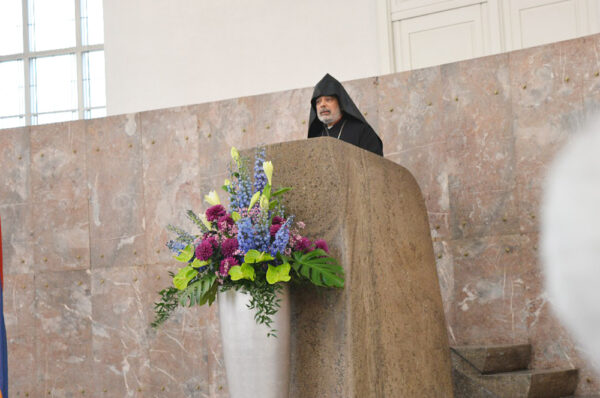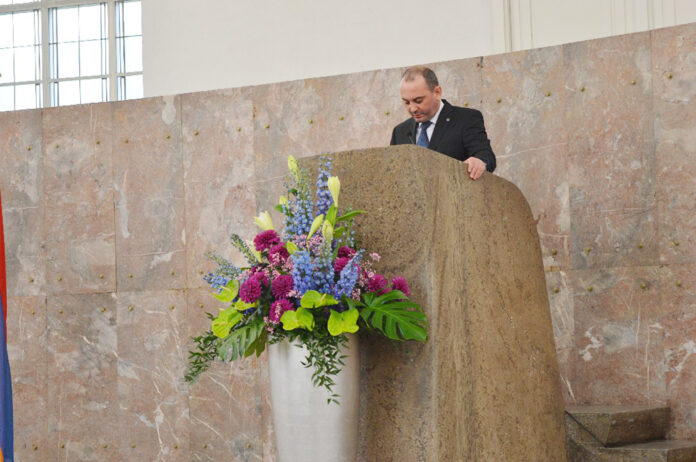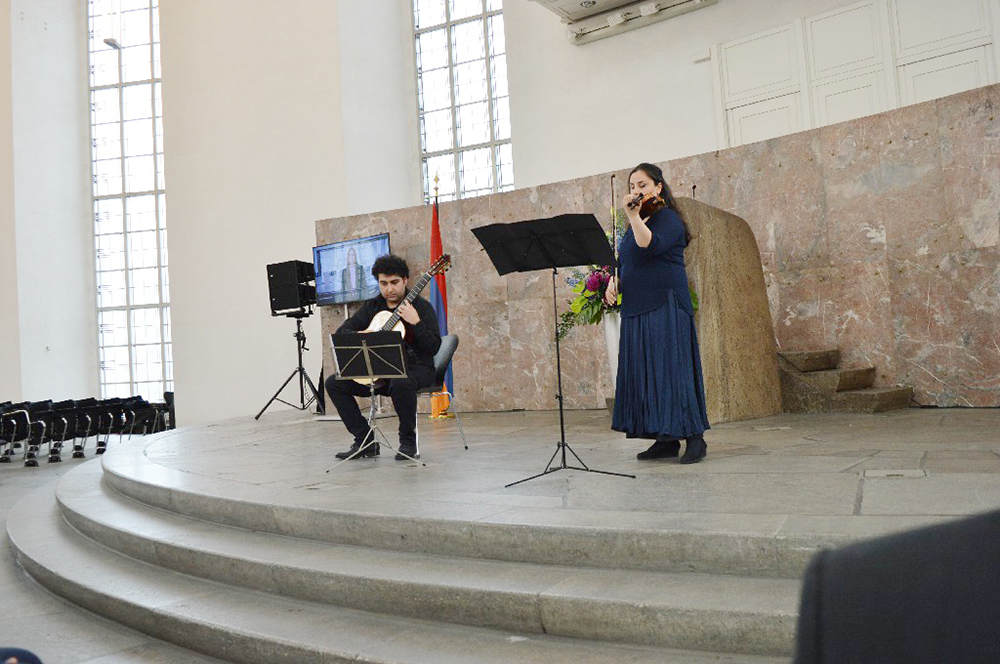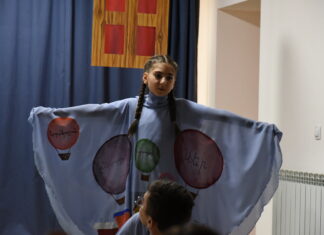FRANKFURT — It was in the historic Paulskirche (Church of St. Paul) in Frankfurt that the first National Assembly met in 1848 and worked to produce the first constitution for a German republic.
This year again it hosted the International Day of Commemoration of the Armenian Genocide on Sunday, April 23, organized by the April 24th Group, an initiative which includes the Diocese of the Armenian Church and the Central Council of the Armenians in Germany, as well as the Armenian Embassy in Berlin.
Their leading representatives spoke at the event, along with local political figures, Astrid Wallmann (CDU), President of the Hesse State Parliament, Prof. Dr. Roman Poseck (CDU), Hessian Minister of Justice, and Dr. Bastian Bergerhoff (Green Party), City Treasurer, who offered greetings.
Among the numerous guests were members of the Armenian community, the Hessian State parliament, and churches. Jonathan Spangenberg, Chairman of the Central Council of Armenians, cited American novelist William Faulkner: “The past is never dead. It’s not even past,” and thereby set the theme that others would develop.
The fact that Turkey still refuses to recognize the genocide is emblematic, and the continuing conflict, marked by war and renewed Azerbaijani aggression, not only in Nagorno Karabakh but also against the Republic of Armenia, documents the dangers to Armenian national security to the present day.

Isakhanyan
The humanitarian catastrophe created by Azerbaijan’s blockade of the Lachin corridor is an expression of its genocidal policy.









